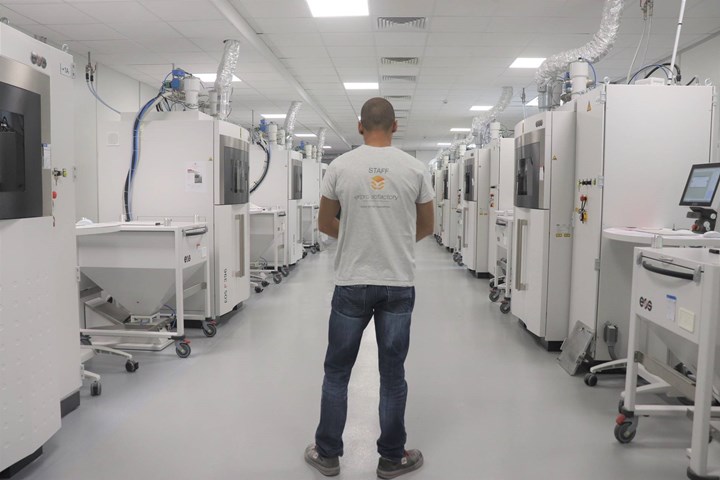Arkema acquires 10% stake in additive manufacturer ERPRO 3D Factory
Investment enables Arkema to accelerate new development opportunities for high-performance polymers and potential fiber-reinforced materials in additive manufacturing.

Photo Credit: ERPRO 3D Factory
Arkema (Colombes, Frances) has invested in large-series additive manufacturer ERPRO 3D Factory (E3DF, France). Founded in 2017, E3DF is already said to have produced more than 19 million parts, most of which have been made with 100% bio-based polyamide 11 powder (see “Arkema begins construction for new bio-based polyamide 11 facility”). Arkema says it will acquire a 10% stake in E3DF to gain new expertise and accelerate the development of new applications for its high-performance polymers in 3D printing. Arkema contends that together, joint development opportunities — which include fiber-reinforced materials — will be possible.
Arkema set up a close partnership with E3DF in 2018, in order to develop numerous projects in cosmetics, medical, automotive and eyewear applications using its range of bio-based and recyclable specialty polyamides, and its N3xtDimension advanced liquid UV-curable resins, said to be suited to the fast-growing and demanding 3D printing market.
With its investment in E3DF, Arkema says it will become a member of the strategic committee of the company and, as a result, reinforce its existing partnership. This transaction is in line with Arkema’s strategy to develop its specialty materials in applications that address major sustainable development challenges.
Related Content
-
Jeep all-composite roof receivers achieve steel performance at low mass
Ultrashort carbon fiber/PPA replaces steel on rooftop brackets to hold Jeep soft tops, hardtops.
-
TU Munich develops cuboidal conformable tanks using carbon fiber composites for increased hydrogen storage
Flat tank enabling standard platform for BEV and FCEV uses thermoplastic and thermoset composites, overwrapped skeleton design in pursuit of 25% more H2 storage.
-
Plant tour: Albany Engineered Composites, Rochester, N.H., U.S.
Efficient, high-quality, well-controlled composites manufacturing at volume is the mantra for this 3D weaving specialist.









.jpg;maxWidth=300;quality=90)


